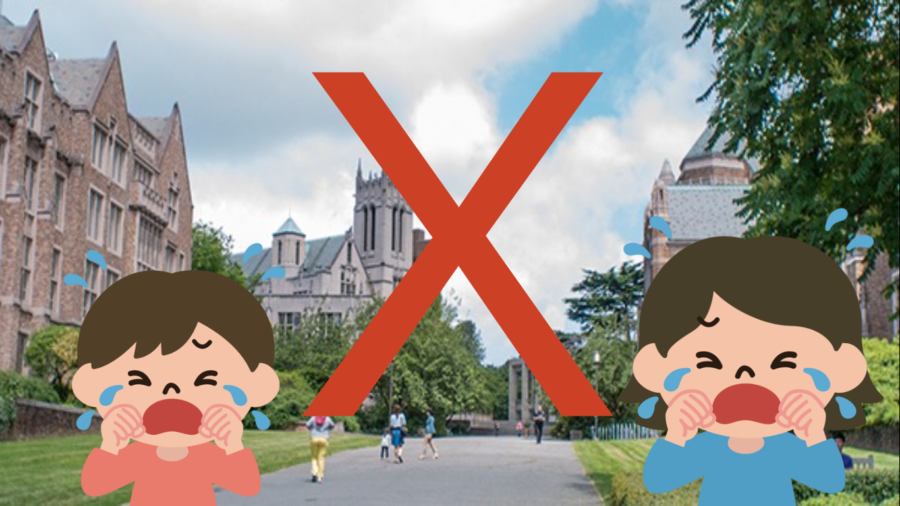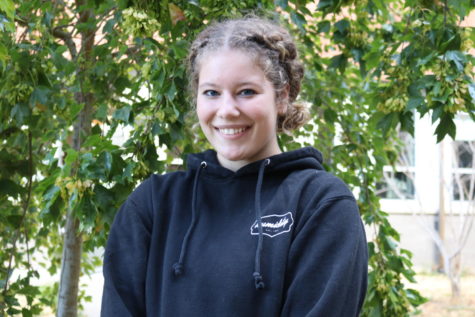Navigating the growing selectivity of the UW – FEATURE COMMENTARY
‘plan for options and be open-minded’
by Ingrid Lid
June 8, 2023
Lined with the embrace of cherry blossom trees sits the University of Washington. At the age of 14, Einstein students had their very first college exposed to them—the University of Washington.
For some of us, it was the college our parents attended and where their parents attended, and maybe it was even where your parents met. Nevertheless, it was the first college engraved into our brains. The first college we could see ourselves going to. The place that acted as a precursor to the rest of our lives.
As the years went by, we all saw the acceptance rate at UW drop and drop and drop. For some, this was only a newfound form of motivation. Motivation to get the perfect grades, to do all of the extracurriculars, and to be the ideal UW applicant.
As junior year turns the corner, I see my peers hyper fixating on one question: what will stand out to admissions? UW admissions is marked by unpredictability. According to Shorewood’s college advisor, Marianne Stephens, “[UW] still says that they are selective but also holistic… which makes it difficult for students and us sometimes to understand which basis they are using for selection.” There is no defined, clear-cut, right way to apply to UW. There is no handbook, there is no one answer, and there is no promise. This unpredictability was particularly evident this year, as I saw more of my peers getting rejected than getting accepted.
“In 2017, there was a 64 percent acceptance rate for our students who applied, and in 2021, it was 50 percent, and I expect that trend to continue.” Stephens said.
Stephens went on to identify the justification behind the increasingly low acceptance rate, explaining that “their only option is to accept fewer students as the application pool increases.”
The competitive nature of UW continues to grow. This is a great example of the importance of open-mindedness. In fact, Stephens said, “Students have some persistent beliefs that really are misguided, like that they have to go to a big school to get good opportunities, and you really don’t… It depends on your goals, and this big-is-better mentality isn’t objectively true.”
This notion that future success is defined by the prestige or exclusivity of the college you attend is incredibly fallacious. As a product of American schooling and the unwarranted norms surrounding success in America, I see my peers forcing themselves to prove their worth through acceptance to selective colleges.
Unfortunately, with application can come rejection.
With that, Stephens highlights how rejected applicants should “pivot to options, and for students who will be applying to college in the future, we tell them to plan for options and be open-minded. UW is great, but it’s not the holy grail of colleges for everyone, and sometimes it’s treated as such or regarded as such. Students can get amazing opportunities in lots of places.”
This speaks true to those who have been waitlisted at UW as well. There is no shame in attending UW Bothell or Tacoma, regardless of the stigma surrounding those options. In fact, in Frank Bruni’s New York Times article, “There’s Only One College Ranking List That Matters,” UW Tacoma was proudly ranked #3 on a list of the best schools that are less selective, low in price, and have graduates with high earnings, while UW Bothell was ranked #8 on the same list.
All in all, one’s success is defined by the individual, so for future college applicants, find schools that are tailored to you as an individual.
Be brutally honest with your needs and desires as a student and approach the application process with a sense of open-mindedness and an ability to maintain self-worth.




